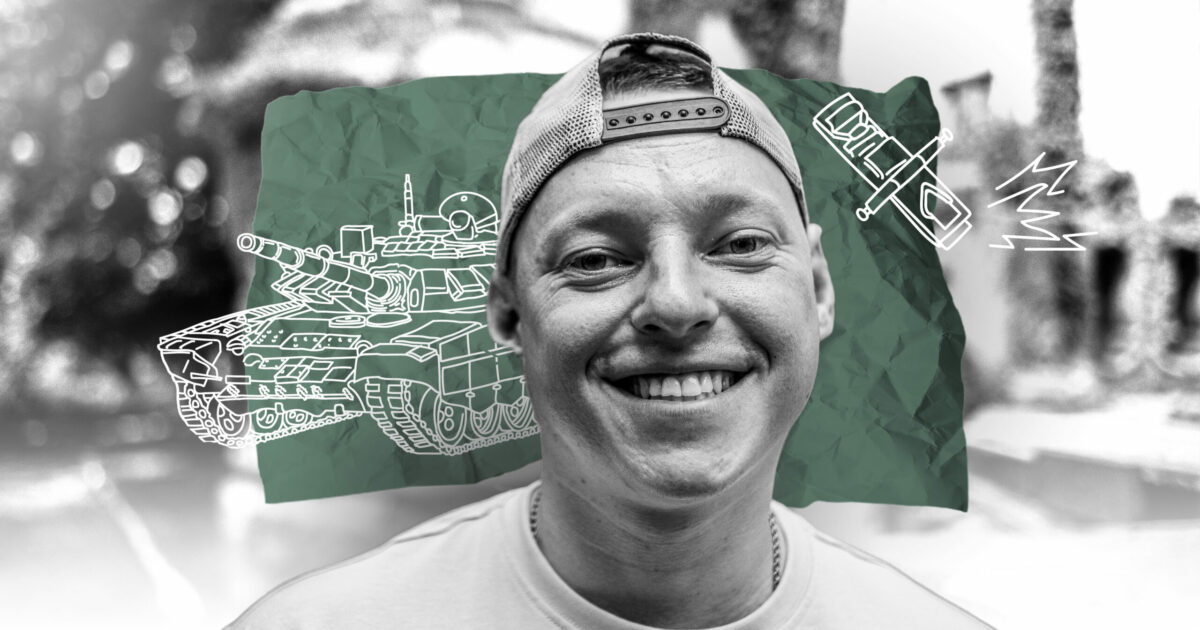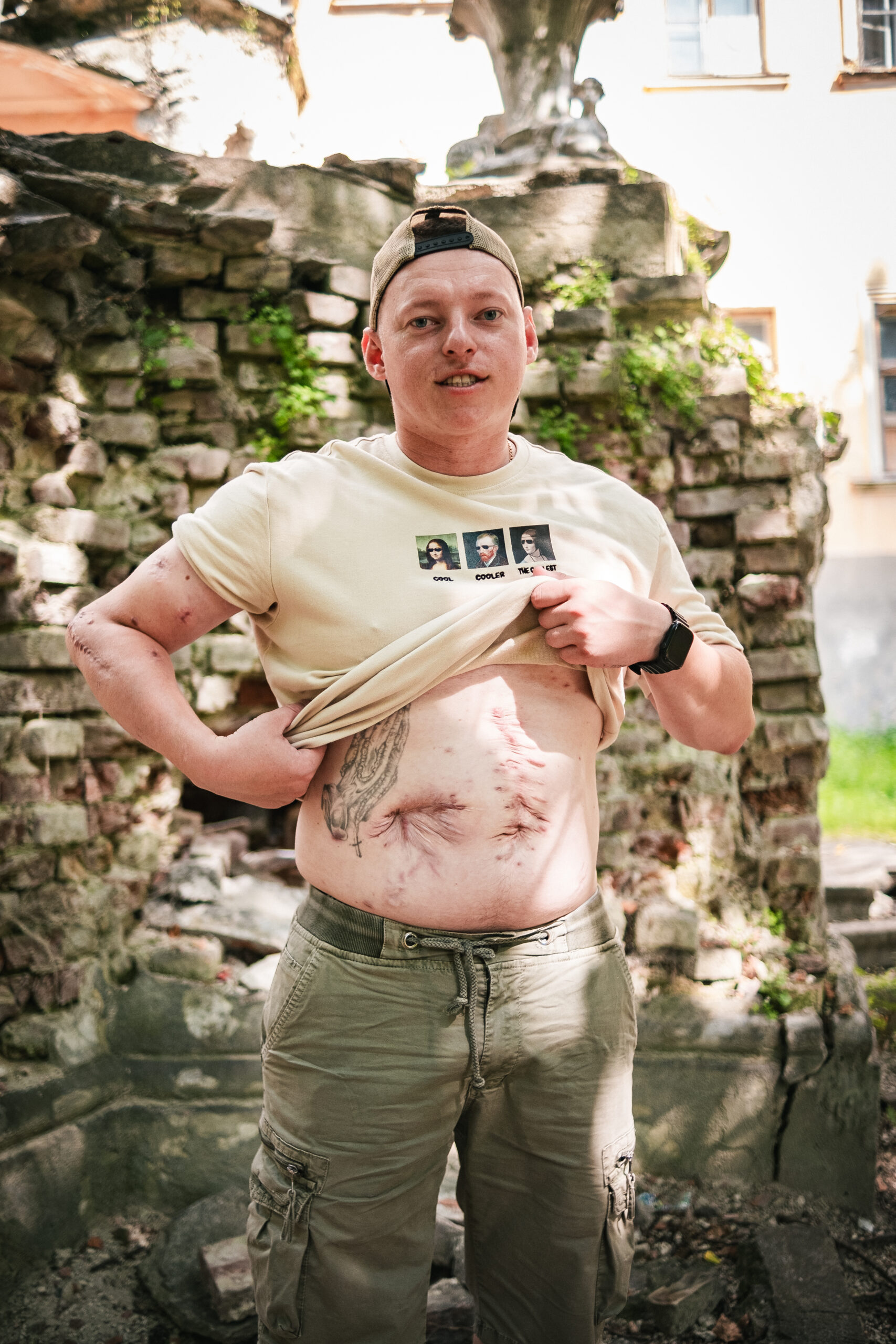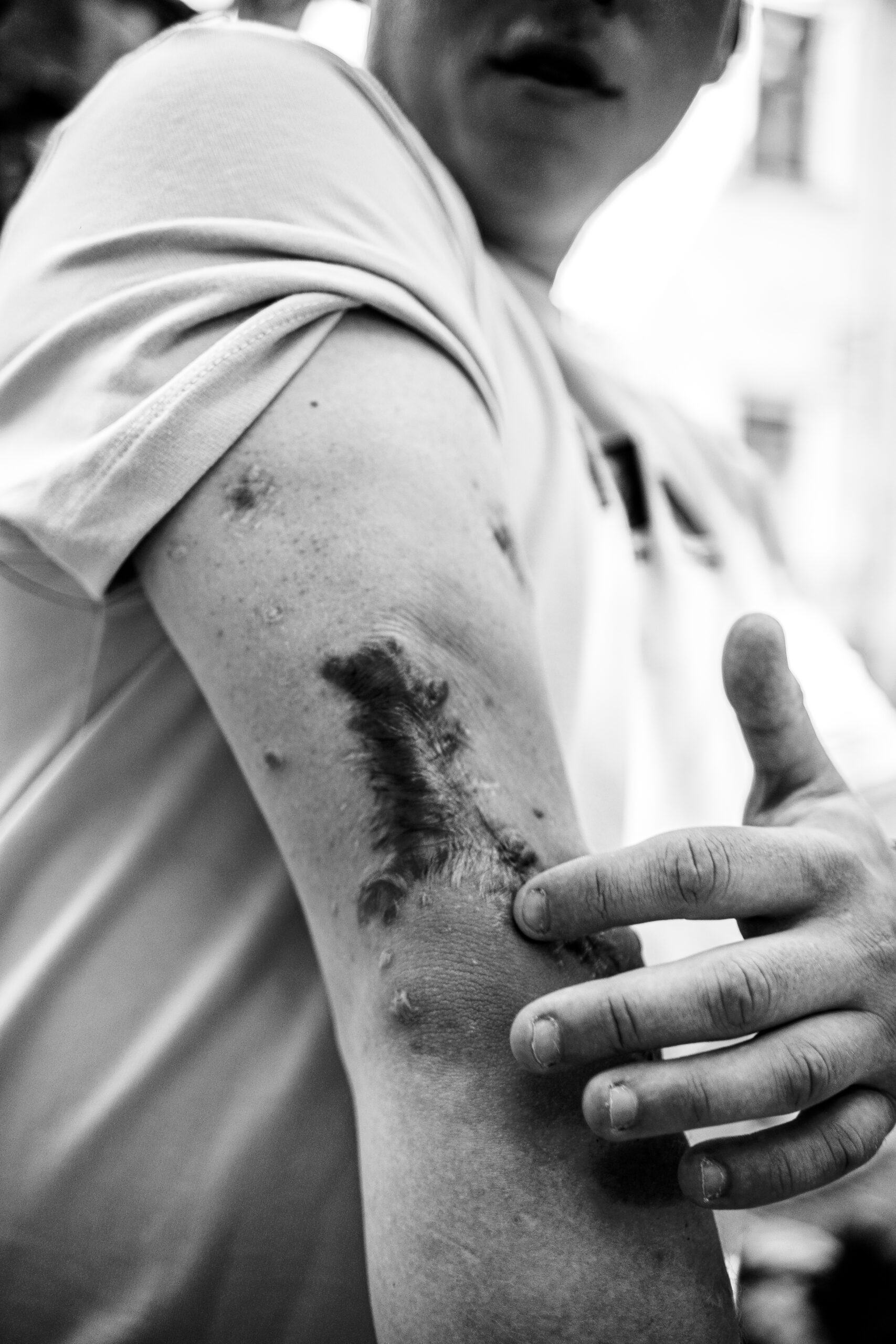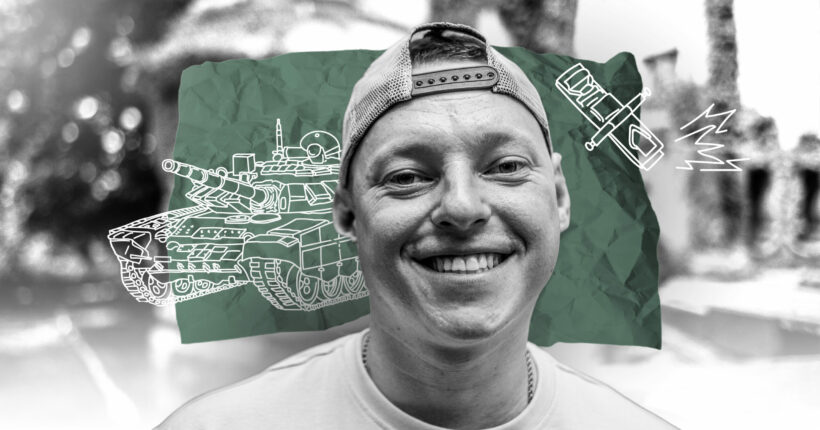
Malashkevych has been involved in kickboxing since he was a child, entered a sports college, then received a scholarship at a pedagogical university. His parents could not afford to pay for his education, so his mother encouraged him to study hard because this might be the only chance to get a higher education. She said: "I want you to connect your life with something else, not the army," Malashkevych shares.
In October 2015, after studying for only a year and a half, Malashkevych applied to the Azov battalion. According to him, at that time, a lot of people wanted to get there, but they had to go through the selection process and wait another 30 days for a decision. Malashkevych did not want to wait and started collecting documents for joining the ranks of the Ukrainian army.
"I was doing so well in sports, so I thought I would be what the 95th brigade needed," he laughs.
In February 2016, Malashkevych found himself in the training center of the airborne assault troops, and in May of the same year, he went on his first combat mission. As a member of the 95th Separate Airborne Assault Brigade, the soldier made his way from a soldier to a senior lieutenant.
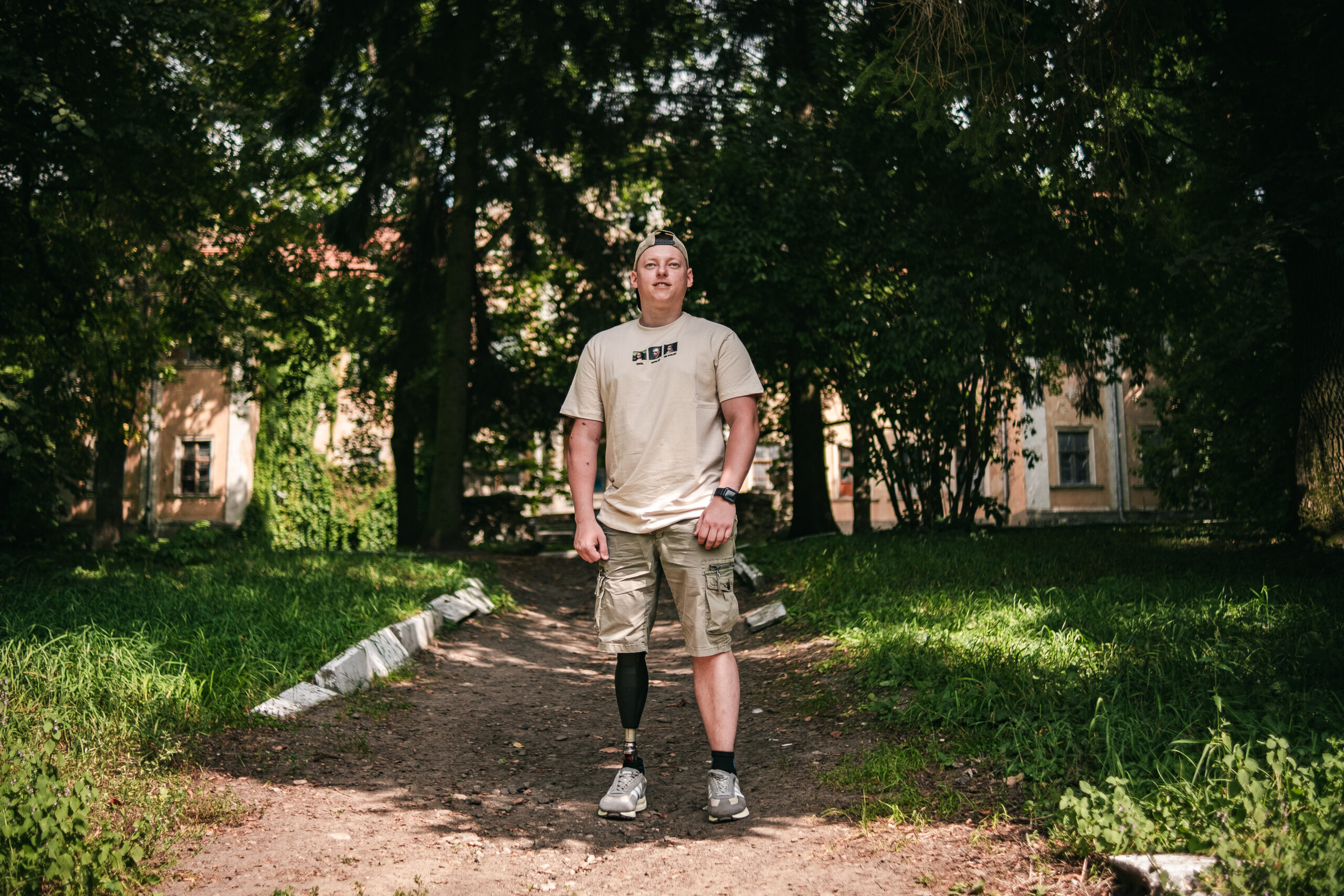
Andrii says that he always excelled in sports, so he had no doubts that he would cope with the service.
When the full-scale invasion began in February 2022, Malashkevych was on a combat mission in Toretsk, the Donetsk region. Then, he served near Bakhmut and the Izyum area. In the Kharkiv region, in the village of Mala Komyshuvakha, Malashkevych was wounded.
"We arrived at night. It was -20 C outside, and we had neither sleeping bags nor mats. We were freezing, because when you dig the ground, you're hot, but when you stop —it gets really cold. I thought about the boys: if we stay overnight, we'll get frostbite on our hands, feet, and face. We had to find a house," Malashkevych recalls. "In the morning, when our sleeping bags, mats, and other things had already arrived, and we were carrying them inside, Russia's Orlan-10 unmanned aerial vehicle noticed us and sent the aircraft."
The plane dropped two aerial bombs when Malashkevych and five of his comrades were in the house. "I was very lucky that my platoon chief sergeant provided me with first aid. He immediately ran and asked: 'Commander, what should I do?'. I looked at my leg, and only a bone was sticking out. I looked at my hand, and there was an open fracture, so I said: 'Put a tourniquet on the arm, a tourniquet on the leg, and when there is a connection, call for evacuation.' He asked me what he should do with the stomach. I was lying and did not yet see that my stomach was also injured," the soldier recalls.
"Look for a prosthesis so I can get back to the boys right away"
The man was lucky that the evacuation to the stabilization point, where he was given medical assistance, took only seven minutes. Later, Malashkevych regained consciousness in Kharkiv. He had an amputated right leg, over 30 shrapnel wounds, a severely damaged right arm, and a severed colon and small intestines.
According to the soldier, when he lifted the sheet and saw that his right leg was gone, he did not understand what to do next. After all, Malashkevych lived an active life — every morning, he ran, rode a bicycle, and attended sports clubs.
"When I first called my mother from the intensive care unit, I didn't tell her that I had problems with my hand, that the internal organs were damaged. I just said: 'Mom, don't worry, I don't have a leg, but you should look for some kind of prosthesis so that I immediately go back to the boys.' Then, when she talked to my surgeon, she fainted. I was in a very bad condition," adds the soldier.
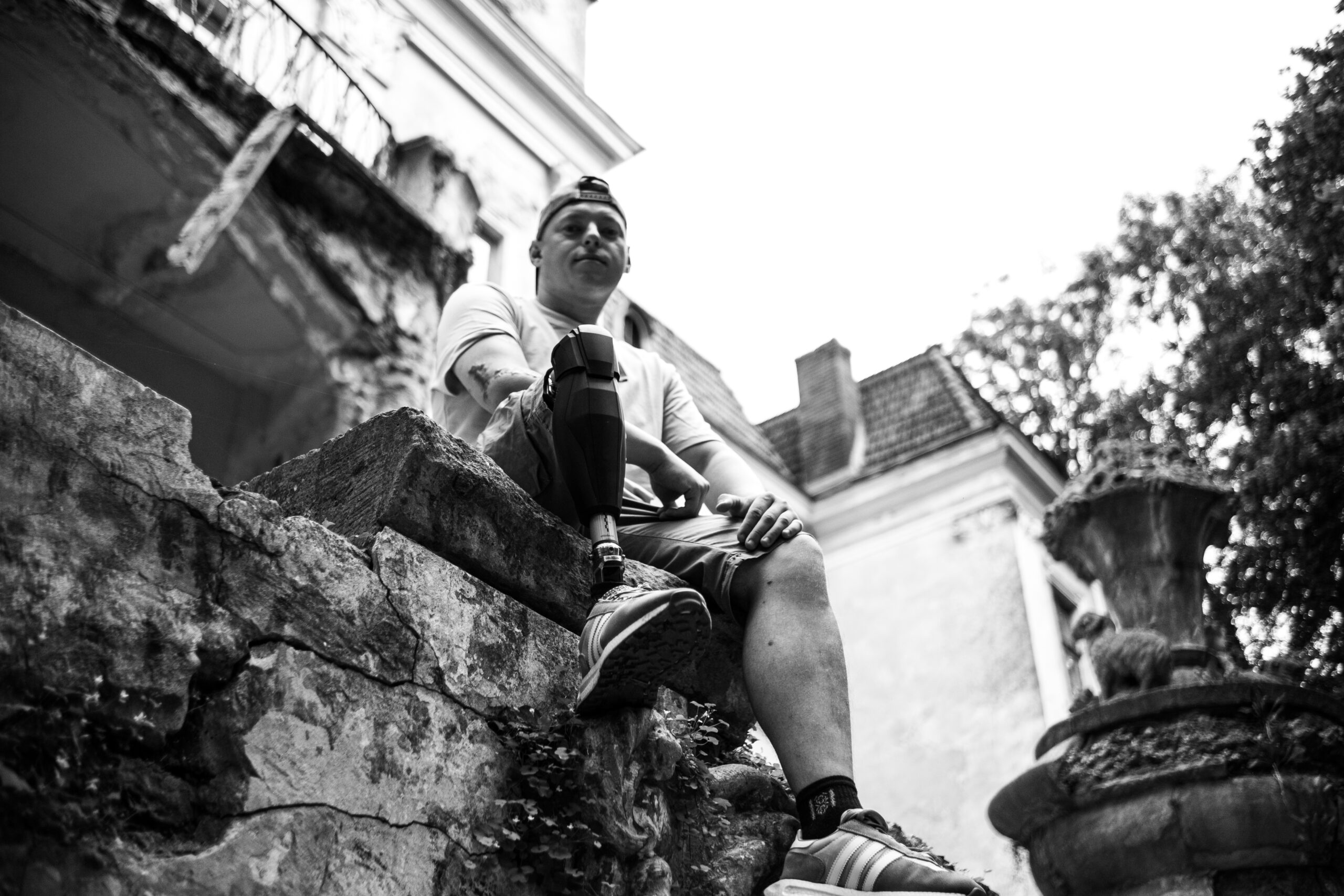
Immediately after the injury, the soldier asked his mother to start looking for a prosthesis for him to return to the army as soon as possible.
The soldier's first prosthesis was mechanical and periodically jammed during fast walking. Then, friends offered their help finding a more functional prosthesis and reached out to the BGV Charitable Foundation, which was already actively cooperating with the Government of Estonia on prosthetics for Ukrainians.
"I don't need crutches or a wheelchair"
Prosthetics and the installation of the state-of-the-art Genius X3 were performed in Tallinn, Estonia. When the Estonian doctors saw the soldier, they were surprised at how well Malashkevych used a mechanical analog. To their surprise, he replied: "I understand that I walk coolly, but I want to return to the life taken from me by the Russian military."

Andrii's greatest desire is to return to the life that Russia took from him.
With the help of Genius X3, Malashkevych not only walks but also climbs and descends stairs, runs short distances, takes a shower, swims in a lake, rides a bicycle, and paddles a kayak: "I have never seen a better prosthesis. When I go home, I don't need crutches or a wheelchair. I only take a prosthesis."
The soldier has many plans for the post-rehabilitation period, including becoming an instructor and climbing Hoverla, the highest mountain in Ukraine and part of the Ukrainian Carpathians. He also has a desire to return to military service.
"I don't consider myself different or limited. I am happy that I can see and breathe and have a head on my shoulders. I proudly consider myself a veteran," Malashkevych proudly told Rubryka.
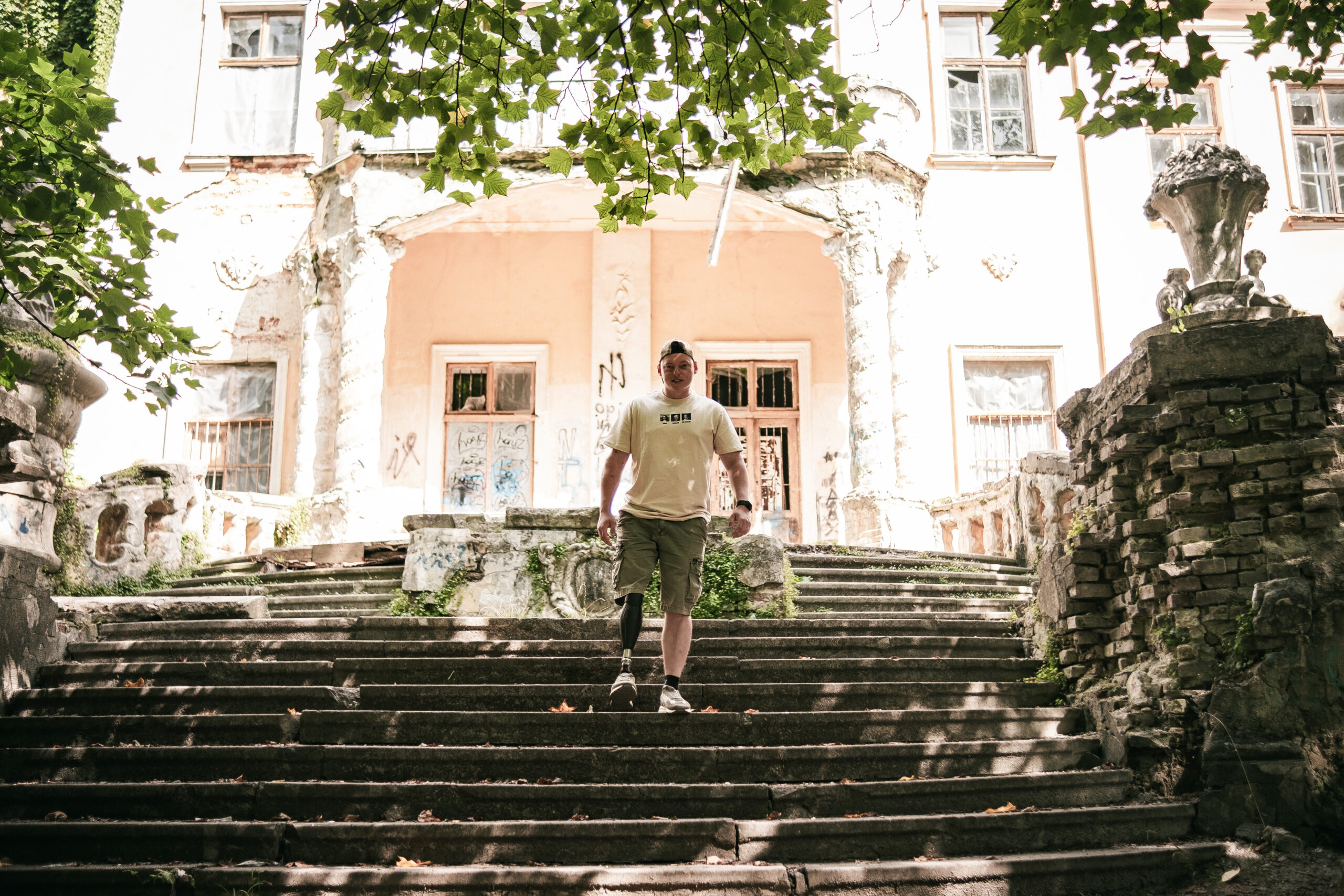
The soldier has already mastered the prosthesis and can cover serious distances without a wheelchair or crutches.
The series of materials Faces of Strength was created within the framework of the special project of the Ukrainian Charitable Foundation BGV and solutions media Rubryka as a way to express gratitude to the Republic of Estonia for the systematic support and with great hope for the continuation of the program on prosthetics of Ukrainians. You can support the prosthetics of Ukrainian defenders by clicking HERE. Your contribution will go towards covering logistics costs for program participants.
Newsletter
Digest of the most interesting news: just about the main thing



